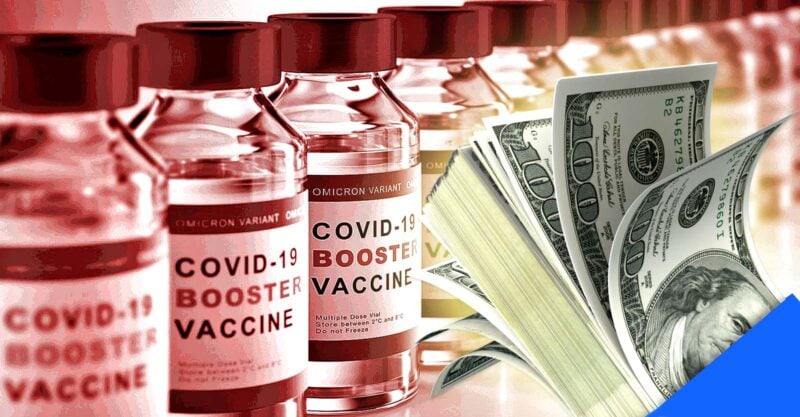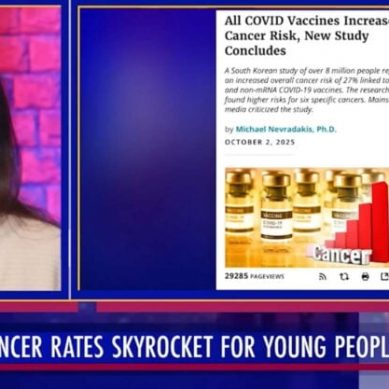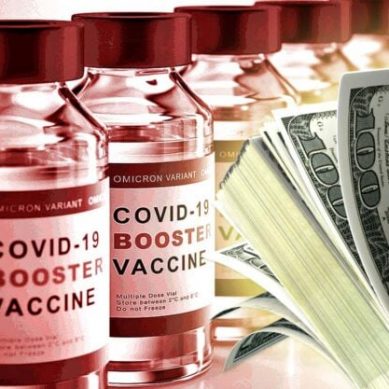
The increasing realisation by most sensible people that Covid-19 is not an existential threat to the population of the world presents an existential threat to the coffers of Big Pharma, so its spectre must continue to be raised.
Nobody does it better than Global Health Now, which recently provided a link to an NBC News item, not so much raising the fear of Covid-19, but extolling the virtues of the Covid-19 vaccine boosters.
To be fair to Dr Akshay Syal, author of the article, he did question whether boosters were necessary or effective in young people, where their effectiveness, without the meaning of that effectiveness being defined, hovers at under 30 per cent.
One wonders what happened to the original chutzpah about Covid-19 vaccines being around 90 per cent effective.
Undeterred by their poor performance in younger people, Syal was able to salvage the reputation of the boosters, which are more effective in older people.
Whatever Covid-19 is and whatever the vaccines do, there has indeed been long-standing evidence that they are more effective in older people who are also at greater risk if they are infected with Covid-19.
However, that may partly be accounted for by their lower safety profile in younger people. There is nothing unique about Covid-19: older people are at greater risk of becoming infected with any virus due to reduced immune system efficiency.
Concomitantly, they are at greater risk if they become infected. Data for the NBC report come from a study published in the New England Journal of Medicine (NEJM) by a team from St Louis, Missouri. The size of the study cannot be faulted, and I do not question either the raw data or the analysis, as far as it goes.
The authors compared 164,132 participants who had taken a Covid-19 booster along with an annual flu shot with 31,839 participants who had taken only the flu shot in December 2024. The authors were approached for comment by NBC News, but did not reply.
For various outcomes, in every 10,000 people, they calculated 18.3 fewer for urgent hospital visits, 7.5 fewer for hospitalisation and 2.2 fewer for death related to Covid-19. Using the percentages for protection against these outcomes, the NBC article reported an overall effectiveness of the boosters in over-65-year-olds in the study of “close to 40 per cent” (meaning under 40 per cent).
Regular readers of TCW will immediately spot the likely problem here, which is, as we have often reported, the use of relative risk reduction instead of the recommended absolute risk reduction.
They also fail to mention the number of older people who need to be vaccinated to prevent one of these outcomes from occurring.
When we do that, things that did not look especially impressive in the first place look distinctly less impressive.
The need to be vaccinated for urgent hospital visits is 546, for hospitalisation it is 1,399 and for death related to Covid-19 it is 4,545. While Covid-19 vaccines appear to be safer in older people, they are not entirely safe.
We have made the point elsewhere that if only one person out of 4,545 dies from a Covid-19 vaccine side effect, the effectiveness of the vaccines at preventing death is zero.
If more than one person out of 4,545 dies, their effectiveness is negative. While the authors of the NEJM study acknowledge the existence of Covid-19 vaccine side effects, including myocarditis, they did not evaluate adverse events. Such studies rarely take these into account.
Clearly, at scale, if millions of people are vaccinated and boosted against Covid-19 there may be appreciable public health benefits. However, those considering taking a vaccine are not and should not be primarily concerned about the public health outcomes.
They should be concerned solely with whether their risk of succumbing to an infection is significantly decreased and if they are likely to suffer adverse effects.
The problem with public health and Big Pharma is that its high priests are not concerned about you; they are concerned about themselves. In the end, if we roll up our sleeves, the only thing getting boosted is their balance sheets.
- A Tell Media report







